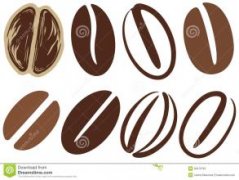Gourmet coffee has soft acidity and attractive aroma. It is absolutely worth enjoying in Tanzania.
The term "fine coffee" was first put forward by Ms. Knudsen of the United States in Coffee and Tea magazine. At that time, Ms. Knudsen, as a coffee buyer of B.C. Ireland in San Francisco, was very dissatisfied with the neglect of the quality of raw coffee in the industry, and even some big roasters mixed a large amount of Robesda beans in the comprehensive beans, so she put forward the concept of fine coffee to advocate the improvement of the quality of the industry. This term is used to describe coffee beans with distinctive flavor characteristics that grow in a special environment. Its use in international coffee conferences makes it spread rapidly.
Gourmet coffee has soft acidity and attractive aroma, which is absolutely worth enjoying.
Coffee exports from Tanzania (Tanzania) play an important role in the whole national economy. Bean-shaped berry coffee is very productive and is said to be more fragrant than ordinary coffee. Generally speaking, the coffee beans in Tanzania have an extraordinary quality. For example, the fine Tanzanian AA coffee (Chagga AA), produced in the Moshi district near Mount Kilimanjaro, is famous for its full-grained and fragrant quality.
Due to political instability and rampant diseases and insect pests, the coffee industry in Tanzania has been damaged, resulting in a decline in the overall level of coffee and instability in quality, which in turn lead to lower prices, which is usually the result of a further decline in the coffee industry. What's more, it is estimated that more than 12% of the Arabica coffee grown in northern Tanzania from 1969 to 1985 was smuggled into Kenya. Recently, however, the country's coffee industry has shown signs of improving. Although the process of improvement is slow, it is still encouraging because, after all, the quality of coffee in Tanzania is excellent.
In the past, the coffee industry in Tanzania has been dominated by manor cultivation, but now more than 85% are grown by small farmers. Many small farmers are combined into cooperative organizations, the most important of which is the Kilimanjaro Cooperative Alliance (Kilimanjaro Cooperative Union, referred to as KNCU). Tanzanian coffee is sold by the Tanzanian Coffee Management Council (Tanzanian Coffee Marketing Board, TCMB) to private exporters by auction. In the 1980s, most coffee sales in Tanzania changed from auctions to being sold directly to the Coffee Management Committee of Tanzania, and the coffee industry is being reformed to allow individuals or groups to buy coffee in the future. at that time, coffee will have to be graded in different ways in order to attract buyers from Germany, Finland, Belgium and Japan.

Important Notice :
前街咖啡 FrontStreet Coffee has moved to new addredd:
FrontStreet Coffee Address: 315,Donghua East Road,GuangZhou
Tel:020 38364473
- Prev

Sao Tome and Principe Democratic Republic of Arabian coffee beans with small quantity, high quality and soft and rich taste
The term "fine coffee" was first put forward by Ms. Knudsen of the United States in Coffee and Tea magazine. At that time, Ms. Knudsen, as a coffee buyer at B.C. Ireland in San Francisco, was very dissatisfied with the neglect of the quality of raw coffee in the industry, and even some big roasters mixed a large amount of Robesda beans in the comprehensive beans, so she put forward the concept of boutique coffee.
- Next

Introduction to the taste producing areas of coffee beans
Santos Coffee: mainly produced in Sao Paulo, Brazil. Sweet, sour and bitter are neutral, moderately sour, special and elegant. Java coffee: produced in Java, Indonesia, belonging to Arabica coffee. After baking, the bitter taste is extremely strong and the aroma is very light, without sour taste. Guatemala Coffee: with excellent sour and sweet taste, it is the best material for mixed coffee and suitable for deep roasting.
Related
- Does Rose Summer choose Blue, Green or Red? Detailed explanation of Rose Summer Coffee plots and Classification in Panamanian Jade Manor
- What is the difference between the origin, producing area, processing plant, cooperative and manor of coffee beans?
- How fine does the espresso powder fit? how to grind the espresso?
- Sca coffee roasting degree color card coffee roasting degree 8 roasting color values what do you mean?
- The practice of lattes: how to make lattes at home
- Introduction to Indonesian Fine Coffee beans-- Java Coffee producing area of Indonesian Arabica Coffee
- How much will the flavor of light and medium roasted rose summer be expressed? What baking level is rose summer suitable for?
- Introduction to the characteristics of washing, sun-drying or wet-planing coffee commonly used in Mantenin, Indonesia
- Price characteristics of Arabica Coffee Bean Starbucks introduction to Manning Coffee Bean Taste producing area Variety Manor
- What is the authentic Yega flavor? What are the flavor characteristics of the really excellent Yejasuffi coffee beans?

